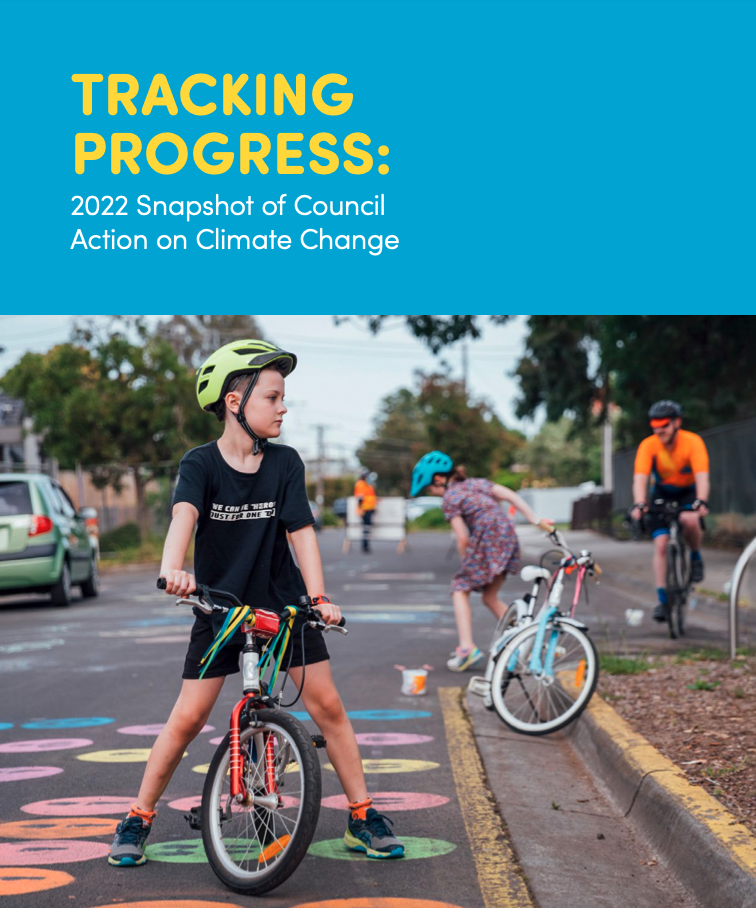The Cities Power Partnership have just launched our latest report – Tracking Progress: 2022 Snapshot of Council Action on Climate Change – which showcases the clean energy progress made by our membership network of local governments around Australia.
Every year, we roll out a Reporting and Feedback Survey to our members to gain insights and help inform the future of the program, as well as receive an update on their Cities Power Partnership pledges. This report summarises the results from the 158 councils who completed 2022’s survey.
The report also shows how our team is supporting councils to take effective climate action, and identifies opportunities to enhance that support. We’re committed to adopting a data driven approach to the design and development of our program. The Annual Reporting & Feedback Survey gives us the opportunity to better understand, verify and quantify where councils are positioned.
In reading the report you will find:
- An overview of the CPP membership network, including our member council’s priorities
- The most challenging and most common barriers councils face in taking climate action
- A pulse check on local government decision making and processes
- Climate policies, targets and declarations from councils leading the way
- Council progress on various areas of climate mitigation – from Active Transport to Getting off Gas
- A summary of the status of pledges the CPP network has committed to, and how the CPP can support our membership going forward.
The top 5 insights we took away from this report were:
1) Local Government continues to raise the bar on ambitious climate action and emission reduction initiatives. CPP’s network has committed to over 755 pledges, an increase on the 711 pledges reported in our previous Tracking Progress Report. In 2022, 92 pledge commitments were reported as either completed or evaluated.
2) Councils need more support to implement their climate initiatives. The most common barriers councils face when implementing emission reduction initiatives is not having enough access to staff resources (83%) and a lack of funds for initiatives (64%). Almost one third of member councils reported to have less than two employees working on sustainability.
3) Collaboration and knowledge sharing between councils remains a top priority. For the third year in a row, the ability for member councils to share learnings and insights has remained the most valuable aspect of CPP membership to council officers.
4) Local government has a comprehensive understanding of its community needs when adapting to climate change. Member councils, on average, said that they strongly agreed that they understand which members in their community are most vulnerable to the impacts of climate change, which actions can be implemented and what their community values most. This local knowledge is a valuable resource that can be leveraged to help design and implement national adaptation policy.
5) Communities want their councils to continue to take strong climate action. 9 in 10 councils said they thought their community was either supportive or strongly supportive of council taking climate action. This highlights the importance of councils being assisted to engage with their communities.



